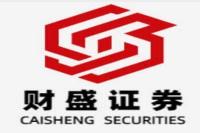India's Stock Market Interoperability: Navigating the Regulatory Landscape and Ensuring Seamless Trading
Meta Description: Deep dive into the recent Indian regulatory notification on stock exchange interoperability, exploring its implications for market efficiency, investor protection, and future trading dynamics. We analyze the challenges, opportunities, and best practices for ensuring business continuity in this evolving landscape. #StockMarketInteroperability #India #RegulatoryCompliance #FinancialMarkets #BusinessContinuity
Imagine this: a seamless, unified Indian stock market where trading across multiple exchanges is as fluid as navigating a single platform. Sounds utopian, right? Well, India's steadily moving towards this vision, albeit with the necessary regulatory safeguards in place. The recent notification from the market regulator on the business continuity of the interoperable segment of stock exchanges is a significant step in this journey. But it also presents a complex web of challenges and opportunities. This isn't just about technical upgrades; it's a delicate balancing act between promoting market efficiency, ensuring investor protection, and fostering healthy competition. This article delves deep into the heart of this matter, offering insights gleaned from years of experience in the financial sector. We'll dissect the implications of this notification, analyze its impact on various stakeholders, and explore the best practices for navigating the evolving regulatory landscape. Get ready for a comprehensive and insightful exploration of one of the most crucial developments in India's dynamic financial market. Forget dry legalese; we'll break it down in plain English, using real-world examples and expert analysis to demystify this critical topic. We’ll address the practical considerations, the potential pitfalls, and the exciting possibilities this interoperability initiative unlocks. So, buckle up, because this is going to be a fascinating ride!
Stock Market Interoperability in India: A Deep Dive
The recent notification from the Securities and Exchange Board of India (SEBI) regarding the business continuity aspects of stock exchange interoperability has sent ripples through the financial ecosystem. This isn't just another regulatory update; it signals a pivotal moment in India's journey towards a more integrated and efficient stock market. The core objective? To ensure that trading activities are not disrupted even in the event of a failure at one exchange. Think about it – a single point of failure could trigger a domino effect, leading to widespread market instability and potentially huge financial losses. This notification is all about mitigating that risk.
But let's be clear: interoperability isn't just about disaster recovery. It's about creating a level playing field, increasing market depth, and enhancing liquidity. Imagine investors having access to a wider range of trading opportunities without the hassle of juggling multiple platforms. This opens doors to greater competition among exchanges, potentially driving down costs and improving services for everyone. It's a win-win – or at least, it should be.
Challenges and Opportunities
The road to seamless interoperability is paved with challenges. Integrating different technological systems, ensuring data security and integrity across platforms, and establishing robust risk management frameworks are just a few of the hurdles. Furthermore, harmonizing trading rules and regulations across exchanges is no small feat. Think of it like building a complex puzzle with pieces from different manufacturers – each with its own unique design and specifications.
However, the opportunities are equally compelling. Increased market depth and liquidity can attract more foreign investment, bolstering India's position as a major global financial hub. Investors will benefit from increased choice, potentially leading to better returns and reduced trading costs. Enhanced competition could also lead to innovative products and services, ultimately benefiting the entire ecosystem.
Key Aspects of the SEBI Notification
The notification focuses on several crucial aspects, including:
- Redundancy and Backup Systems: Exchanges must have robust backup systems to ensure continuous operation in case of primary system failure. Think of it as having a spare tire for your car – you hope you never need it, but it's essential to have.
- Disaster Recovery Plans: Comprehensive disaster recovery plans are mandatory, outlining procedures for swiftly restoring services in the event of unforeseen circumstances. This isn't just a theoretical exercise; it’s a critical element of risk mitigation.
- Data Security: Protecting sensitive market data is paramount. The notification emphasizes the need for robust security measures to prevent unauthorized access and data breaches. This is not just about complying with regulations; it's about safeguarding investor confidence.
- Testing and Audits: Regular testing and audits are essential to ensure the effectiveness of backup systems and disaster recovery plans. This is akin to regular health checkups – proactive maintenance is far better than reactive repairs.
- Coordination and Collaboration: Effective coordination and collaboration between exchanges and market participants are crucial for seamless interoperability. This requires a collaborative spirit and a shared commitment to the overall goal.
Case Studies and Best Practices
Examining successful interoperability initiatives in other mature markets can provide valuable insights. For instance, the experience of the European Union in creating a unified market provides lessons in both success and overcoming obstacles. Learning from both triumphs and failures is essential for India's journey. Best practices include leveraging advanced technologies like cloud computing and blockchain to enhance resilience and security. Implementing stringent cybersecurity protocols and rigorous testing procedures are also crucial.
The Future of Interoperability in India
The future of stock market interoperability in India is bright, albeit challenging. The SEBI notification represents a significant stride toward a more integrated and efficient market. However, successful implementation requires a collaborative effort from all stakeholders, including exchanges, brokers, investors, and regulatory bodies. This will undoubtedly require significant investment in technology and infrastructure. However, the potential rewards – a more robust, resilient, and globally competitive market – far outweigh the costs.
Frequently Asked Questions (FAQs)
Q1: What is stock market interoperability?
A1: Stock market interoperability refers to the ability to seamlessly trade securities across multiple stock exchanges within a single market. Imagine it like having one giant, unified marketplace instead of several separate ones.
Q2: Why is interoperability important for India's stock market?
A2: Interoperability enhances market depth and liquidity, attracts foreign investment, encourages competition among exchanges, and ultimately benefits investors through increased choice and potentially lower trading costs.
Q3: What are the challenges in implementing interoperability?
A3: Integrating different technological systems, ensuring data security, harmonizing trading rules, and establishing robust risk management frameworks are major challenges.
Q4: How does the SEBI notification address business continuity?
A4: The notification mandates robust backup systems, disaster recovery plans, stringent security measures, and regular testing and audits to ensure uninterrupted trading even during disruptions.
Q5: What role do technology and innovation play in achieving interoperability?
A5: Advanced technologies like cloud computing and blockchain can significantly enhance resilience and security, supporting seamless interoperability.
Q6: What are the potential benefits for investors from interoperability?
A6: Investors will likely benefit from increased trading options, potentially lower costs, enhanced liquidity, and a more robust and resilient market overall.
Conclusion
India's push towards stock market interoperability represents a significant leap forward in its financial market development. While challenges remain, the potential benefits are substantial. The SEBI notification provides a strong framework for navigating the complexities of this crucial initiative. By embracing collaboration, innovation, and a commitment to best practices, India can pave the way for a more efficient, secure, and globally competitive stock market that benefits all stakeholders. The journey may be complex, but the destination – a unified and robust Indian stock market – is well worth the effort. The future looks promising, and the potential for growth is immense. It's a game-changer, no doubt!



